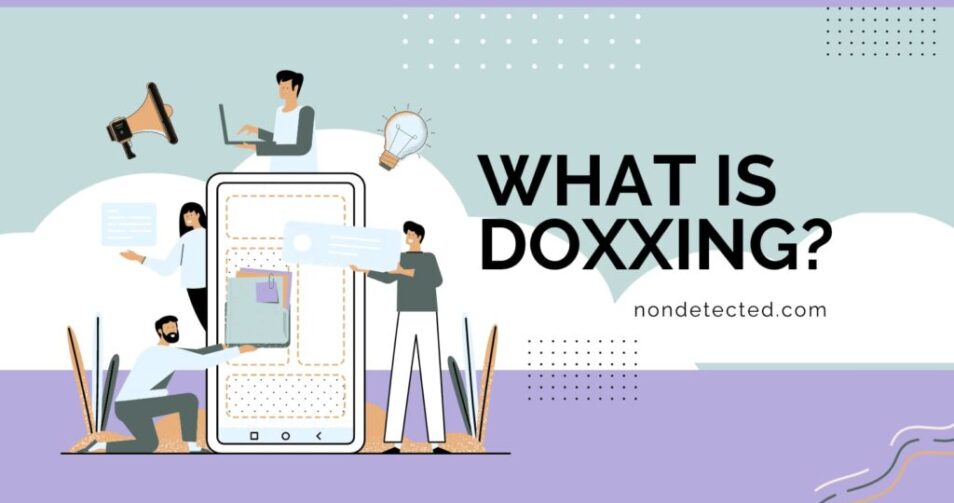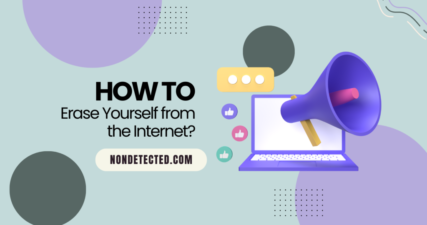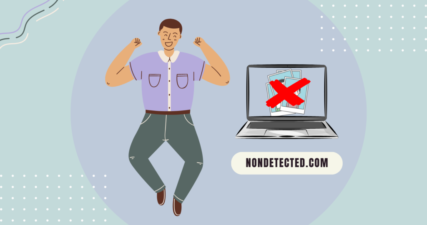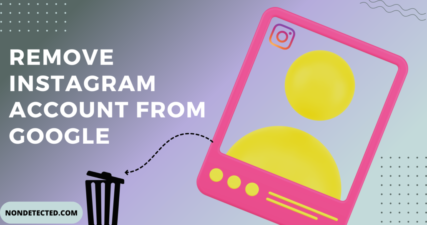What is Doxxing? What To Do If You’ve Been Doxed?

Hello everyone, my name is Tomas, and I work for NonDetected, a company dedicated to helping individuals protect their personal information online. Today, I want to talk about a serious issue that has been gaining prominence in our increasingly digital world – doxxing.
What is Doxxing?
As someone who has spent years in the field of online security, I’ve seen firsthand how doxxing can disrupt lives. But what exactly is doxxing? In simple terms, doxxing, short for “dropping documents,” is the act of revealing someone’s private information online without their consent.
This can include their real name, home address, phone numbers, passport number, driver’s license number or address of your workplace, financial details (such as credit card accounts), and more.
The term ‘doxxing’ is believed to have originated from the hacker community in the 1990s, where anonymity was considered sacred. Over time, the term has expanded beyond the hacker world and is now used to describe any act of private details exposure.
Doxxing or Doxing?
You might be wondering about the spelling – is it ‘dox’ or ‘doxx’? Both are correct, but ‘doxxing’ with two ‘x’s is more commonly used today.
How Does Doxxing Work?
Now, let’s delve into how doxxing works. From my experience, I can tell you that doxxing is like piecing together a puzzle. Doxxers collect small pieces of information about a person scattered across the internet and assemble them to reveal the real person behind an alias. This information can include the target’s name, physical address, email address, phone number, and more.
The process of doxxing can be disturbingly simple. Many people use the same username across a wide variety of services. This allows potential doxxers to build up a picture of the target’s interests and how they spend their time on the internet.
Another common method is running a WHOIS search on a domain name. Anyone with a domain name has their information stored in a registry often publicly available via a WHOIS search. If the person who bought the domain name did not obscure their private information at the purchase time, personally identifying information is available online for anyone to find.
When private information ends up on public forums or search engines, it can feel impossible to get ahead of it. Some companies specialize in helping remove personal details like home addresses or phone numbers from public listings and aggregator sites—saving you hours of chasing it all down manually.
The next section’ll discuss whether doxxing is a form of cyberbullying and its legal implications. We’ll also share some real-life examples of doxxing and provide practical tips on protecting yourself from becoming a victim. Stay tuned for more insights from my years of experience in the field.
Is Doxxing a Form of Cyberbullying?
As I’ve navigated the complex world of online security, I’ve come to see doxxing as a particularly insidious form of cyberbullying. When someone’s personal information is exposed online without their consent, it can lead to a cascade of negative effects. The victim may face harassment, threats, identity theft, and other forms of cyberbullying.
In my view, doxxing is indeed a form of cyberbullying. It’s a tool used to intimidate, harass, and cause harm. It’s a way for the perpetrator to exert power and control, often causing significant distress to the victim.
Is Doxxing Actually Illegal?
This is a question I get asked a lot, and the answer is complex. The legality of doxxing depends largely on the jurisdiction and the specific circumstances. In most places, doxxing itself isn’t explicitly illegal. However, actions associated with doxxing, such as harassment, stalking, or threats, can be illegal.
For instance, in Singapore, most forms of intentional harassment, including doxxing, are outlawed. In the UK, there are guidelines for handling cases involving threats to post personal information on social media. In the US, measures vary across states. Nevada, for example, has a bill that bans doxxing, and California considers cyber harassment, including doxxing, a crime.
However, the legal landscape is evolving, and more jurisdictions are recognizing the harm caused by doxxing and enacting laws to combat it.
In the next section, I’ll share some real-world examples of doxxing incidents to illustrate its impact and consequences. I’ll also provide practical tips on protecting yourself from doxxing, drawing from my years of experience in the field. Stay tuned for more insights and advice.
Examples of Doxxing
Throughout my career, I’ve seen numerous instances of doxxing, each one a stark reminder of the damage it can cause. Let me share a couple of examples that highlight the severity of this issue.
One notable case occurred during the Gamergate incident in 2014. Several female game developers were targeted with doxxing and threats, leading to widespread fear and anxiety within the gaming community. This incident served as a wake-up call for many about the potential dangers of doxxing.
Another example is the South African journalist Karima Brown, who was doxxed by a political party leader. This led to her receiving threats, demonstrating how doxxing can be used as a tool for political intimidation.
Modern Examples
Here are three more recent examples of doxxing that highlight its prevalence and impact.
During the 2019 Hong Kong protests, both pro-democracy protesters and police officers became victims of doxxing. Personal details, including names, photos, and addresses, were shared across online platforms, leading to harassment and threats. This widespread doxxing led the Hong Kong government to implement stricter laws against the practice.
In 2020, during the height of the COVID-19 pandemic, individuals who tested positive for the virus were doxxed in several countries. Their personal information was shared online, leading to social ostracization and harassment. This misuse of sensitive health information highlighted the potential dangers of doxxing in a public health crisis.
In the aftermath of the Capitol riots in the United States in January 2021, several participants were doxxed. Social media users and online sleuths identified individuals from photos and videos of the event and shared their personal information online. This led to real-world consequences, including job losses and legal repercussions.
These examples underscore the fact that doxxing can affect anyone, from political activists to ordinary citizens, and can have serious real-world consequences. It’s a stark reminder of why we need to take steps to protect our personal information online.
How to Protect Yourself from Doxxing?

As someone who has spent years helping people protect their online identities, I can’t stress enough the importance of taking proactive steps to safeguard your sensitive personal information. Here are some tips based on my experience:
Secure Your Social Media Accounts
Social media platforms are often the first place doxxers look for information. Make your social media accounts and other online accounts private and be mindful of the information you share. Even seemingly harmless details, like your favorite restaurant or pet’s name, can be used by doxxers to piece together your personal information. Regularly review your privacy settings and limit the amount of information you share publicly.
Be Wary of Data Brokers
Data brokers are companies that collect and sell personal information. They gather data from various sources, including public records, online activities, purchase histories, and sell personal info. Opt out of data broker lists when possible, and be cautious about where you share your information. Remember, once your data is sold, controlling who has access to it can be challenging.
Protect Your Bank Account Information
Your financial information is a prime target for doxxers. Never share your bank account information online, and ensure that your financial institutions have robust security measures in place. Regularly monitor your bank accounts for any suspicious activity. If you notice anything unusual, contact your bank immediately.
Use a Reliable Internet Service Provider
Your Internet Service Provider (ISP) is crucial to your online security. Some ISPs offer additional security features that can help protect your personal details. These can include VPN services, antivirus software, and secure email options.
Create Separate Email Accounts
Using different email accounts for different purposes can prevent doxxers from gaining access to all your information if one account is compromised. For example, you could have one email for personal communications, one for online shopping, and another for social media accounts. This way, if one account is compromised, the others remain secure.
Hide Domain Registration Information
If you own a domain, your registration details could be publicly available through a WHOIS search. This can include your name, address, and contact information. Make sure to opt for domain privacy when registering a domain to keep this information private.
Be Mindful of Your Online Search Histories
Your online search history can reveal a lot about you, from your interests and hobbies to your health concerns and financial situation. Regularly clear your online search history and use private browsing modes to prevent tracking.
Beware of Reverse Mobile Phone Lookup Services
These services can reveal your personal information through your phone number. Avoid sharing your mobile phone number online where possible, and consider using a separate number for online activities.
Check Government Records for Private Information
Some personal information might be available in public government records, such as voter registrations or property records. Check these and request removal or anonymization where possible.
Secure Your Internet Data
Using a Virtual Private Network (VPN) can encrypt your private data and hide your IP address, making it harder for doxxers to track you. A VPN can also prevent packet sniffing, a method used by doxxers to intercept and decode data being transferred over a network.
Use a Password Manager
A password manager can help you create and manage strong, unique passwords for each of your online accounts, reducing the risk of your accounts being compromised. It’s also a good idea to enable multi-factor authentication where available for added security.
Be Cautious on Online Forums and Message Boards
You have secured your social media account, but online forums and message boards can be a goldmine for doxxers. Avoid sharing personal details and real identity and consider using pseudonyms. Remember, once information is shared online, it can be difficult to remove.
Monitor Your Credit Card Activity
Regularly check your credit card activity for any suspicious transactions. If you notice anything unusual, contact your credit card provider immediately. Consider signing up for transaction alerts from your credit card company to keep track of your card activity in real time.
Limit App Permissions
Be cautious about the permissions you grant to apps. Some apps may request access to personal information that they don’t actually need.
What to Do If You’ve Been Doxxed?

Finding out that you’ve been doxxed can be a terrifying experience. But remember, you’re not alone, and there are steps you can take to mitigate the damage and protect yourself. Here’s what I recommend based on my years of experience in online security:
Document Everything ✔️
Take screenshots and keep records of all instances of doxxing. This can be crucial evidence if you decide to report the incident to law enforcement or the relevant online platforms.
Report the Incident ✔️
Report the doxxing to the platform where your information was shared. Most social media sites and online platforms have policies against sharing personal information and can help take down the exposed information.
Involve Law Enforcement ✔️
If you’re receiving threats or fear for your safety, contact your local police department. Provide them with all the information and evidence you’ve gathered.
Secure Your Accounts ✔️
Change your passwords, enable two-factor authentication, and take other steps to secure your online accounts. This can help prevent further unauthorized access to your information.
Monitor Your Financial Accounts ✔️
Keep a close eye on your bank accounts and credit card activity for any signs of fraudulent activity.
Reach Out to NonDetected.com for Assistance ✅
In the face of a doxxing incident, it’s crucial to have a reliable ally by your side. That’s where NonDetected.com comes in. As a company dedicated to online security, we specialize in helping individuals who’ve been doxxed. We understand the distress and fear of being a doxxing victim, and we’re here to help.
Our team of experts can guide you through the process of securing your online presence. We can assist in removing unnecessary information from the web, making it harder for doxxers to continue exposing your personal details. This includes contacting data brokers, liaising with social media platforms, and contacting search engines to request the removal of your information.
Moreover, we offer ongoing support to help you maintain your online security. We’ll provide you with the latest tips and best practices to protect your personal information and stay one step ahead of doxxers.
At NonDetected.com, we believe that everyone has the right to privacy and security online. If you’ve been doxxed, don’t hesitate to reach out to us.
We’re here to help you navigate this challenging situation and regain your peace of mind.
In the next section, we’ll discuss the prevalence of doxxing and how many people have been affected by it. Stay tuned for more insights from my years of experience in the field.
The Prevalence of Doxxing
In my years of working in online security, I’ve seen the prevalence of doxxing increase dramatically. It’s difficult to provide an exact number of people who have been doxxed, as many incidents go unreported. However, the rise of social media and the ease with which personal information can be shared have undoubtedly led to an increase in doxxing incidents.
A Data & Society Research Institute study found that nearly one in five Americans has experienced severe forms of online harassment, including doxxing. This statistic is a sobering reminder of how widespread this issue has become.
Moreover, it’s important to remember that the impact of doxxing extends beyond the individuals directly targeted. Friends, family members, and colleagues can also be affected, leading to a ripple effect of harm and distress.
In cases where the incident attracted media attention or was shared by public blogs, articles can stick around long after the situation is resolved. There are services that assist with requesting removal of outdated or damaging news content to prevent it from following you indefinitely.
Ready to wrap up our discussion on doxxing and share some final thoughts and advice.
Now you know what is doxxing and how to prevent it
In the realm of digital interactions, doxxing is a serious issue that demands our attention. It’s a form of cyberbullying with severe consequences, causing significant distress and disruption in people’s lives.
From my years of experience in online security, I can affirm that the key to combating doxxing lies in awareness and proactive measures. Understanding what doxxing is, how it works, and its potential impact is the first step. The next is taking active steps to protect your personal information online.
Remember, services like NonDetected.com are here to assist. We specialize in removing unnecessary information from the web, making it harder for doxxers to find and expose your personal details. It’s one of the many steps you can take to protect yourself in this digital age.
In the end, the internet is a powerful tool that brings countless benefits. But like any tool, it can be misused. By staying informed and vigilant, we can ensure that it remains a safe and positive space for all.
Thank you for taking the time to understand the world of doxxing with me. I hope my insights and advice will help you interact in the digital world with greater confidence and security.


